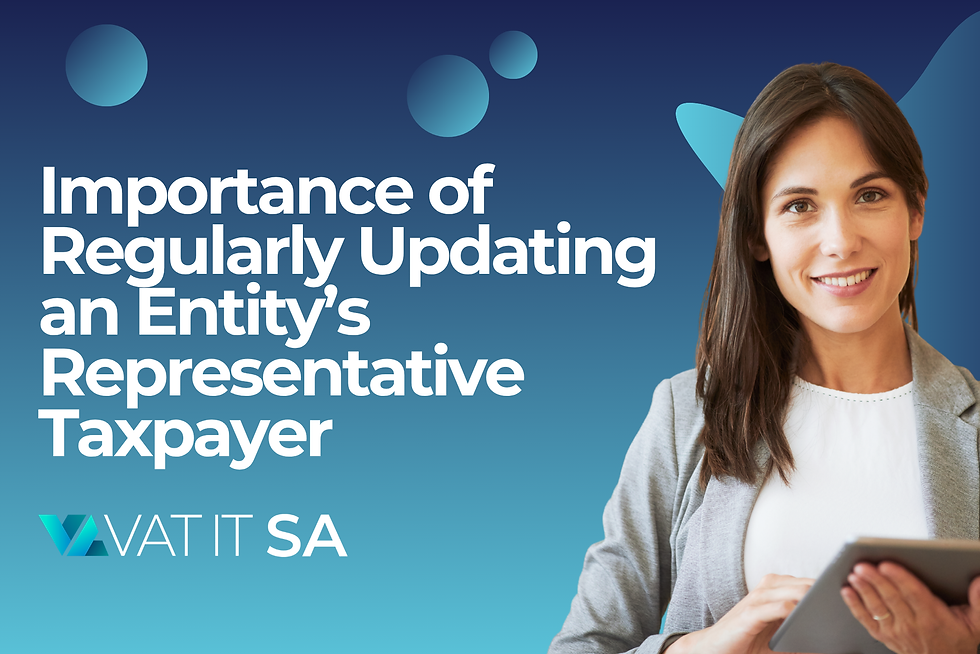Clarifying VAT on Supplies from Foreign Electronic Services Providers
- Ruan Jansen van Vuuren

- Nov 24, 2022
- 3 min read

Background on legislative amendments
The Value-Added Tax Act, 1991 (“the Act"), prior to 2014, provided for the inbound supply of electronic services to be taxed by means of the “imported services” provisions contained in the Act. In terms of these provisions, the importation of electronic services was subject to a reverse charge mechanism in which the South African recipient of these services had to declare the VAT.
Subsequently, on 28 March 2014, a government regulation was published to introduce electronic services into the South African VAT legislation. This changed how electronic services providers were taxed. Previously, the onus was on the South African Recipient to declare VAT on electronic services. Now, the foreign electronic service providers must account for VAT.
On 18 March 2019, Government further updated the Regulations, effective from 1 April 2019, which broadened the definition of “electronic services”. In addition, the Act was amended by the insertion of the definition of “intermediary,” effective 1 April 2019, to allow persons who provide “platforms” or “electronic marketplaces” to foreign principal suppliers, to account for VAT on their behalf.
The updated regulations now widened the scope of qualifying electronic services. It is important to note that South African legislation does not make any distinction of supplies between B2C (Business to Consumer) and B2B (Business to Business).
Impact of amendments on foreign electronic service providers supplying to South African residents
A foreign supplier of electronic services will be conducting an enterprise in terms of paragraph (b)(vi) of the definition “enterprise” in section 1(1) of the Act if the electronic services are supplied from a place in an export country, and any two of the following three circumstances are present:
The recipient of the service is a resident of South Africa;
The payment for the service originates from a bank registered under the Banks Act 94 of 1990 (the Banks Act); or
The recipient of the service has a business, residential or postal address in South Africa.
What services will constitute electronic services?
Services prescribed as “electronic services” for the purposes of the definition in section 1 (1) of the Act means any services supplied by a foreign electronic services provider for consideration by means of:
an electronic agent (i.e. automated means);
an electronic communication; or
the internet.
In other words
dependent on information technology;
automated; and
involves minimal human intervention.
Are there any exclusions for the definition of “electronic services”? Specifically excluded from the definition of “electronic services” are:
Educational services provided by a person from an export country which person is regulated by an educational authority in terms of the laws of that export country;
Telecommunications services; and
Certain supplies of services where the supplier and recipient belong to the same group of companies.
Is there a VAT registration threshold for foreign electronic services providers?
Section 1(b)(vi), read with section 23(1A) of the Act provides that the foreign electronic services provider must register as a VAT vendor at the end of any month where the total value of taxable supplies made and deemed to be made by that foreign electronic service provider, exceeded R1 million in any consecutive 12-month period.
Contact our team of specialists at info@vatitsa.co.za should you require more information regarding these updated regulations and the impact it may have on any foreign electronic services providers that must register and account for VAT purposes in South Africa.



Comments